If you aren't getting the results you want from your wellness program, it may be time to try a new incentive plan. Three out of four employers who offer wellness programs also offer some kind of incentive. However, most companies still issue rewards based on participation alone.
Only a small percentage of employers have implemented an outcomes-based incentive plan – one that ties incentives to achieving specific health outcomes, such as a target BMI. One reason few companies are requiring actual changes in biometrics is due to legal requirements that must be followed before an incentive can be tied to achieving a specific health standard.
But new guidelines written by a group of private and government health organizations offers concrete guidance for using outcomes-based incentives as part of an employee wellness program. By issuing definitive guidelines, the collaborating organizations are hoping to put your legal fears to rest about outcomes-based incentives.
The intent is to encourage more employers to implement "more potent incentive designs intended to improve the health of their workforce, increase participation and engagement in wellness programs, and, ultimately, reduce healthcare costs and related business expenses."
The nondiscrimination provisions of the Health Insurance Portability and Accountability Act (HIPAA) generally prohibit a group health plan from charging one individual a higher premium than another based on a health factor. However, employer-sponsored group health plans may offer incentives for achieving a health standard (or assess penalties for failure to meet the standard) if they adhere to the five requirements of the wellness program exception:
- The total amount of all rewards or penalties relating to meeting the health standard must not exceed 20 percent of the total cost of coverage. (The allowable percentage increases to 30 percent in January 2014).
- The program must be reasonably designed to promote health and wellness.
- Individuals must be able to qualify for the reward at least once a year.
- The reward must be available to all similarly situated individuals, and a reasonable alternative standard or waiver must be offered to employees with medical conditions that make it unreasonably difficult or medically inadvisable to attempt to meet the standard during the allotted time frame.
- The availability of a reasonable alternative standard or waiver must be adequately communicated.
The new guidelines (also called the Joint Consensus Statement) begin by suggesting program components that would most certainly be viewed as a "reasonably designed" wellness program. These include: strategic planning, cultural support, assessment and screening programs, behavior change interventions, engagement methods (communications and incentives), and measurement and evaluation techniques.
The authors then offer guidance on the types of health standards that would likely be considered reasonable under the HIPAA wellness exception if an organization were to adopt an outcomes-based incentive design. Because the CDC estimates that as much as 75 percent of all U.S. healthcare spending is for people with chronic conditions, the joint committee recommendations focus on just four modifiable health risks responsible for such spending:
- Tobacco use
- Poor nutrition
- Lack of physical activity
- Excessive alcohol consumption
Moreover, these appear to be the most commonly used standards by companies that have already adopted an incentive structure based on health standards. Recent results from a market survey show that 90 percent of companies with an outcomes-based wellness program use a weight-related standard. And about 75 percent use outcomes-based programs that measure blood pressure, cholesterol, and tobacco use.
According to Wellsource founder and board chair, Don Hall, DrPH, CHES, there are other health outcomes you should consider tying incentives to as well. They are:
- Lowering A1C levels in both diabetics and non-diabetics
- Lowering triglycerides or fasting blood sugar levels
- Raising HDL
- Changes in percent body fat (regardless of weight change)
- Increases in Peak Aerobic Capacity (measured with a cardiovascular fitness test such as a treadmill test or a one-mile walk)
- Improvements in serum vitamin D levels
The Joint Consensus Statement shies away from incentive plans that tie the entire incentive amount to passing or failing one specific health standard, although such plans are not prohibited. Instead, it recommends setting goals that are more flexible than "ideal" targets – which would be out-of-reach for many – such as a sliding scale for making meaningful progress toward the goal.
The goal may be collective rather than individual, such as working together to decrease the company's total weight. In fact, the joint committee guidelines prefer that you offer the reasonable alternatives, not just those with medical conditions. That way, everyone has a choice in how they meet the goal.
Using an unmodifiable condition would not be reasonable based on the new guidelines. Nor would a requirement that was overly burdensome in the amount of time required to meet the goal. The financial burden should also be taken into account. "Neither the time nor the financial resources required to achieve an alternative standard should be a barrier or burden." For those with a medical condition, the guidelines recommend deferring to the individual's healthcare provider for reasonable alternative standards.
And how much of an incentive should you offer for meeting these health standards? According to the Joint Consensus Statement: "Some industry experts suggest, based on extensive real-world experience administering such programs, that $40-60 per month are capable of generating behavior changes by many participants, at least in the short run."






